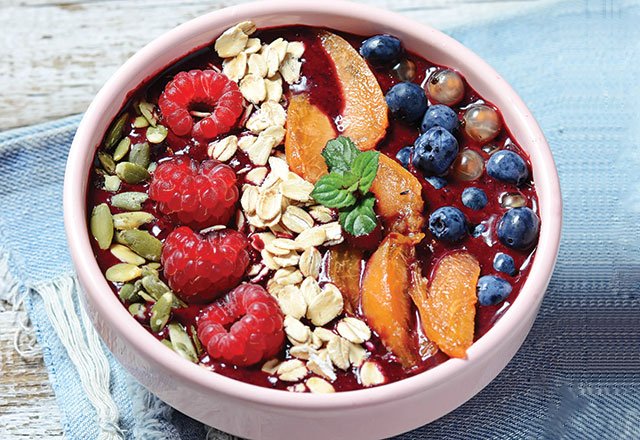
The importance of a brain-boosting breakfast

There's a reason why it's the most important meal of the day.
If you're skipping breakfast or eating too little, it's time to give yourself the best start.
Like the computer in your smartphone, the brain is small but powerful. It accounts for just two per cent of your weight but gobbles up about 20 per cent of your daily calorie intake. And just like a low battery means emergency calls only, the brain struggles to function with insufficient charge. “The brain is really sensitive to changes in its energy supply. Because it needs a high amount of energy, it’s really sensitive and vulnerable,” says Dr Therese O’Sullivan, senior lecturer in nutrition and dietetics at Edith Cowan University. “If the energy supply to the brain is cut off even for a short time, you can get damage to the brain.”
If you’re struggling to get going in the morning after skipping breakfast, you know what we’re talking about. Study after study has found a relationship between what we put in our mouths and our ability to think clearly, remember important information and maintain a good mood.
Whether you’re seeking brain food to blitz a job interview or make it through a super-frantic day, or just want to be at your sharpest every day, here’s how to give yourself the best start.
It begins with breakfast
Food and drink provides fuel for the body through carbohydrates, protein and fat. Carbohydrates are the brain’s – and body’s – preferred fuel source. The digestive system breaks down carbohydrate-containing foods into simple sugars, mostly glucose, which is carried to cells through the bloodstream. Once inside a cell, glucose is burned along with oxygen to produce energy.
“The preferred fuel for the brain is glucose,” says Dr O’Sullivan. “When the blood glucose concentration falls below normal, hormones such as adrenaline and cortisol are released and that’s associated with feeling irritable, so you get this difficulty in concentrating.”
The solution? Start the day with slow-release carbohydrates found in wholegrain breads and cereals. The amount you eat will also affect your blood glucose levels, so stick to sensible portion sizes (two slices of bread or one cup of cereal or oats) to kick your brain into top gear.
If you can’t start the day without a coffee, accredited practising dietitian and author of The Clean Separation Kara Landau says caffeine can assist with concentration but it’s important to keep your intake to below 300 mg a day (approximately two café-style coffees or three cups of instant) to prevent damage to brain-powering habits like a good night’s sleep.
If you’re keen to kick the habit or don’t fancy the taste of the bean, Susan Pearce, founder of Mind Gardener, suggests going green. “Instead of having coffee in the morning, I’ve swapped to having coconut water blended in a green smoothie with kale, spinach and blueberries. I could almost see instantly the change in mental clarity, not having any fog and having a real sense of calm. The energy stays up too.”
NEXT >> Try these breakfast protein balls for your next morning boost.


